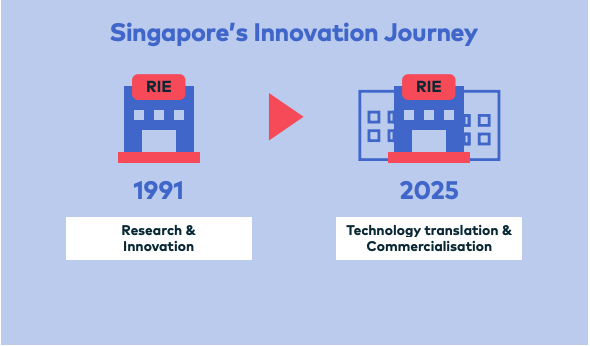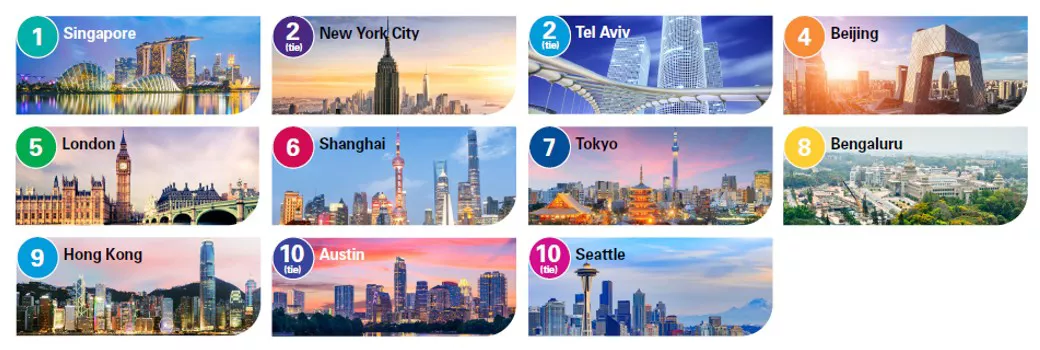
Why Singapore Remains One of the Best Place to Start a Fintech Business
by Fintech News Singapore October 4, 2021Singapore has consistently ranked amongst the top locations in the world to start a business, recognized by the global community for its competitive corporate tax rate, skilled workforce, advanced infrastructure, and political stability.
For fintech companies, Singapore makes sense because it is a renowned international financial center and a fast-growing fintech hub that boasts progressive regulation, innovation support schemes and a government committed to turning the nation into a tech powerhouse. Not only that, but the city-state is also home to a vibrant startup community and a large pool of investors looking to back the next tech success stories.
Despite the ongoing pandemic, business services firm Hawksford believes that now might be the perfect time for companies to expand into Asia.
A stable business hub despite COVID-19
In the 2021 Singapore Business Outlook the report examines why Singapore continues to remain a stable and reliable business hub despite the global pandemic and explains why now is the time for companies to take the leap and set shop in the nation.

*RIE – Research, Innovation and Enterprise
According to the report, as businesses start to reopen in Asia, it is now critical to move fast, especially at a time when there’s less competition and when resources such as real estate, talent, and advertising space can be accessed at a lower rate. In this regard, Singapore is providing an ideal base for companies looking to tap into the economic revival post-pandemic, the report says.
Singapore has historically been a favored destination for multinationals looking to enter Asia, but more recently, global technology giants have flocked to the city-state en masse, looking to set up regional hubs in the country.
TikTok owner ByteDance is planning to invest billions of dollars and recruit hundreds of employees in Singapore as it seeks to base its Southeast Asian regional headquarters there.
Similarly, Chinese bigtech Tencent said it would develop a regional hub for the region in the city-state and open a new office, as it looks to develop a full-scale comprehensive hub in Singapore that would house its international game publishing business.
A tech powerhouse
Singapore’s innovation-focused government, high-quality talent, and business-friendly environment have helped it become one of the world’s biggest tech hubs that’s home to more than 37,000 international companies including Facebook, Google, and Rakuten.
For two years in a row, Singapore has been named the top tech innovation hub in the world, outside of Silicon Valley/San Francisco by KPMG. This puts the nation ahead of other cities like New York, Tel Aviv, Beijing, and London.

Source: KPMG
Around 80 of the world’s top 100 tech firms have a sizeable presence in Singapore including Google, IBM, and Microsoft, according to a Channel News Asia report. Several multinationals have chosen the city-state to establish innovation labs and research and development (R&D) centers such as Nestle, PayPal, MasterCard, and most recently Hyundai.
Singapore’s thriving tech is the product of a range of several factors including strong government support through schemes such as the Digital Acceleration Grant, the Regulatory Technology Grant, and the Artificial Intelligence (AI) and Data Analytics Grant by the Monetary Authority of Singapore (MAS), and the presence of a highly-skilled workforce trained in some of Southeast Asia’s top universities.
The gateway to Southeast Asia
The Association of South East Asian Nations (ASEAN) is one of the fastest growing economic blocs in the world, powered by a rapidly growing middle class and an aggregated consumer market of 628 million people.
Singapore is one of ASEAN’s founding members and has long leveraged its strength in business and reputation to position itself as the gateway for companies of all sizes looking to expand into the Southeast Asian region.
In addition to that, Singapore has established strong ties with other jurisdictions, signing numerous Free Trade Agreements (FTAs) with countries including China, Japan, the US and the European Union (EU), and inking several bilateral Fintech Co-operation Agreements (CAs) with countries such as Hong Kong, India and Switzerland.
Moreover, the Global Innovation Alliance (GIA), a joint initiative between Enterprise Singapore and the Singapore Economic Development Board, has established a network of partners located in more 10 key innovation hubs s around the world, to facilitate startup expansion and foster innovation.
A fintech leader
Last but not least, Singapore is a world-renowned fintech hub, a position it’s successfully grown into thanks to its proactive regulatory framework and policies, and the presence of a large and active investor community.
Today, Singapore is home to more than 1,250 fintech companies including some of the region’s most successful fintechs like Grab Financial Group, according to the Fintech in Singapore 1H2021 report by the United Overseas Bank (UOB).
In particular, blockchain and cryptocurrency is a field that’s dominated the Singaporean fintech scene. Over the past year, global blockchain players like blockchain data platform Chainalysis and crypto exchange Gemini have set up shop in Singapore, DBS Bank has launched its digital currency exchange, and MAS has pursued its distributed ledger technology (DLT) ambitions, joining forces with the Bank for International Settlements (BIS) Innovation Hub and other central banks to test the use of central bank digital currencies (CBDCs) for international settlements.







